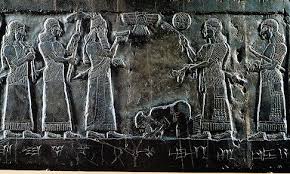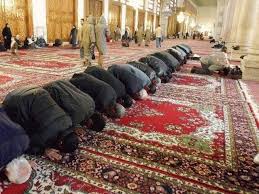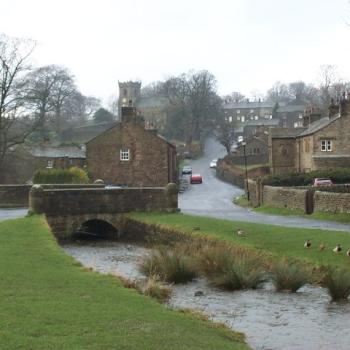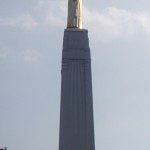
Out of all the things that could and should be said about Luke’s account of the appearance of Gabriel to Zechariah and the promise of the birth of John the Baptist, I choose to focus on one little detail that I find both funny, in a way, and significant:
In verse 18, Zechariah, having just been told that he and his wife are to have a son, responds rather doubtfully, “I am an old man.”
To which, in the following verse, the angel replies, “I am Gabriel.”
I’ve always thought that this could accurately be paraphrased somewhat along the following lines:
Zechariah: “Don’t you realize that I’m an old man?”
Angel: “I certainly do. Don’t you realize who and what I am? I am Gabriel.”
But there’s still more of interest in the response recorded in verse 19: “I am Gabriel, who stand in the presence of God.”
The fact that Gabriel stands in the presence of God is an indicator of his high rank. He isn’t required to kneel in submission, as if he were some kind of slave. He’s a member of the inner circle, of the divine council. Something like a member of the cabinet or the council of ministers.
Which is why he responds to Zechariah’s expression of doubt the way he does. Zechariah’s being old means essentially nothing to someone of Gabriel’s status and power, and to someone coming on the assignment with which he’s been entrusted.

For a brief but somewhat indirectly relevant discussion that was published in the Deseret News back on 27 January 2013, see
“Old Testament divine council called a ‘sod'”
***
Also of some potential relevance is an article that I published in 2000:
“Ye Are Gods: Psalm 82 and John 10 as Witnesses to the Divine Nature of Humankind”
The Evangelical Protestant scholar Michael S. Heiser responded to me and other Latter-day Saint writers on this topic in 2007, in the FARMS Review, of which I was then the editor:
“You’ve Seen One Elohim, You’ve Seen Them All? A Critique of Mormonism’s Use of Psalm 82″
In that same issue of the FARMS Review, David E. Bokovoy replied to Dr. Heiser:
Thereupon, again in that same 2007 issue of the FARMS Review, Dr. Heiser responded to David’s article:
Most recently, Daniel O. McLellan took up the topic in Interpreter, in a fashion somewhat critical of my position but that I don’t regard as fundamentally incompatible with my viewpoint:
“Psalm 82 in Contemporary Latter-day Saint Tradition”











